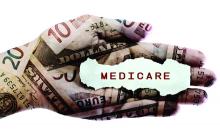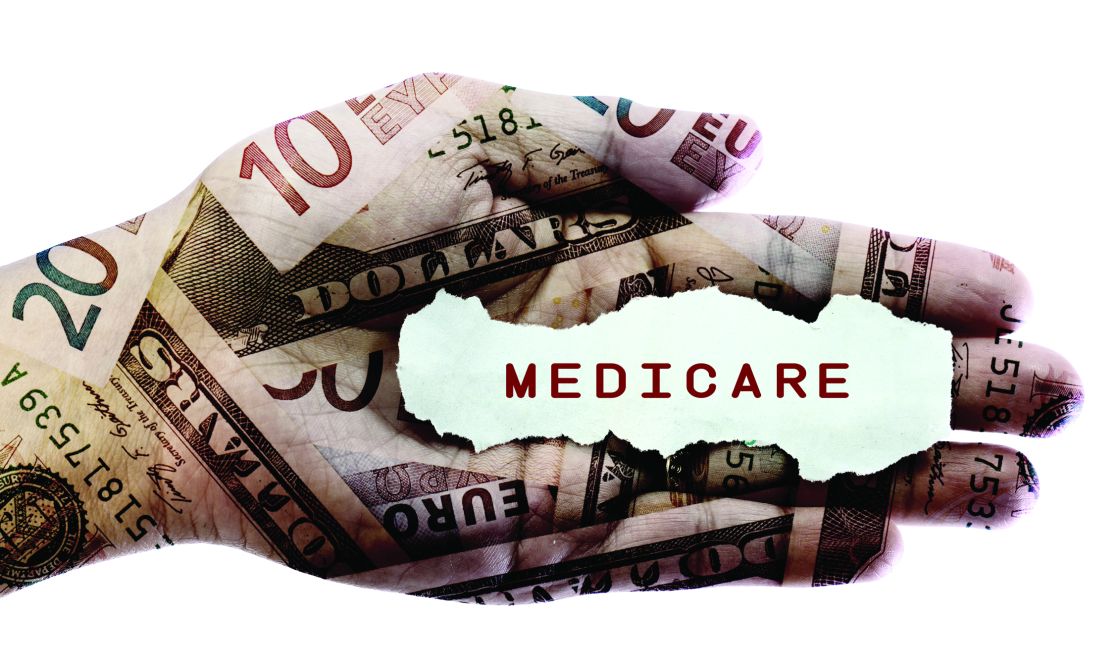User login
The Centers for Medicare & Medicaid Services seeks to exempt more practices participating in Medicare’s Quality Payment Program, the value-based payment program created by Medicare Access and CHIP Reauthorization Act of 2015 (MACRA).
Currently, physicians who receive $30,000 or less in Medicare Part B payments or have 100 or fewer Medicare patients are exempt from QPP but may choose to participate. The proposed rule for the second year of QPP (calendar year 2018) would raise the threshold to $90,000 or less in Part B payments or 200 or fewer Medicare patients. The proposed rule was released June 20.
Under QPP, physicians and practices that are not exempt will choose one of two tracks – the Merit-Based Incentive Payment System (MIPS), which will pay bonuses based on meeting certain quality thresholds, or the advanced alternative payment models (APMs), under which physicians will assume more risk in exchange for greater potential rewards for quality improvement.
“We’ve heard the concerns that too many quality programs, technology requirements, and measures get between the doctor and the patient,” CMS Administrator Seema Verma said in a statement. “That’s why we’re taking a hard look at reducing burdens. By proposing this rule, we aim to improve Medicare by helping doctors and clinicians concentrate on caring for their patients rather than filling out paperwork.”
The proposed rule also introduces the framework for the development of “virtual groups,” a mechanism by which small and solo practices who meet the eligibility requirements for participating in MIPS can pool their reporting into the program to make it easier to share in the bonuses for meeting quality thresholds.
The Centers for Medicare & Medicaid Services seeks to exempt more practices participating in Medicare’s Quality Payment Program, the value-based payment program created by Medicare Access and CHIP Reauthorization Act of 2015 (MACRA).
Currently, physicians who receive $30,000 or less in Medicare Part B payments or have 100 or fewer Medicare patients are exempt from QPP but may choose to participate. The proposed rule for the second year of QPP (calendar year 2018) would raise the threshold to $90,000 or less in Part B payments or 200 or fewer Medicare patients. The proposed rule was released June 20.
Under QPP, physicians and practices that are not exempt will choose one of two tracks – the Merit-Based Incentive Payment System (MIPS), which will pay bonuses based on meeting certain quality thresholds, or the advanced alternative payment models (APMs), under which physicians will assume more risk in exchange for greater potential rewards for quality improvement.
“We’ve heard the concerns that too many quality programs, technology requirements, and measures get between the doctor and the patient,” CMS Administrator Seema Verma said in a statement. “That’s why we’re taking a hard look at reducing burdens. By proposing this rule, we aim to improve Medicare by helping doctors and clinicians concentrate on caring for their patients rather than filling out paperwork.”
The proposed rule also introduces the framework for the development of “virtual groups,” a mechanism by which small and solo practices who meet the eligibility requirements for participating in MIPS can pool their reporting into the program to make it easier to share in the bonuses for meeting quality thresholds.
The Centers for Medicare & Medicaid Services seeks to exempt more practices participating in Medicare’s Quality Payment Program, the value-based payment program created by Medicare Access and CHIP Reauthorization Act of 2015 (MACRA).
Currently, physicians who receive $30,000 or less in Medicare Part B payments or have 100 or fewer Medicare patients are exempt from QPP but may choose to participate. The proposed rule for the second year of QPP (calendar year 2018) would raise the threshold to $90,000 or less in Part B payments or 200 or fewer Medicare patients. The proposed rule was released June 20.
Under QPP, physicians and practices that are not exempt will choose one of two tracks – the Merit-Based Incentive Payment System (MIPS), which will pay bonuses based on meeting certain quality thresholds, or the advanced alternative payment models (APMs), under which physicians will assume more risk in exchange for greater potential rewards for quality improvement.
“We’ve heard the concerns that too many quality programs, technology requirements, and measures get between the doctor and the patient,” CMS Administrator Seema Verma said in a statement. “That’s why we’re taking a hard look at reducing burdens. By proposing this rule, we aim to improve Medicare by helping doctors and clinicians concentrate on caring for their patients rather than filling out paperwork.”
The proposed rule also introduces the framework for the development of “virtual groups,” a mechanism by which small and solo practices who meet the eligibility requirements for participating in MIPS can pool their reporting into the program to make it easier to share in the bonuses for meeting quality thresholds.

